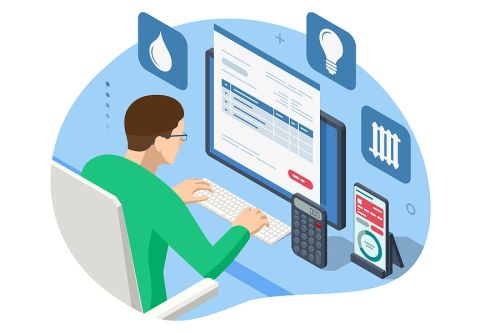Menu
Principal Office, Houston Texas Remote Services, Texas and Florida
(by appointment only)
713.568.8600
(by appointment only)
713.568.8600 | 904.425.9046


A loved one’s passing is challenging on many different levels. In addition to the emotional difficulty of processing someone’s death, there are also the many tasks that must be dealt with, such as going through their various accounts and taking the necessary steps to cancel them or transfer ownership. Deciding what to cancel after someone dies can be a challenging task.
Most people subscribe to multiple digital subscription services in addition to utilities, insurance, memberships, medical prescriptions, and other recurring payment programs. Settling these accounts helps avoid unnecessary charges and protect against identity theft and fraud. If the duty to handle outstanding accounts falls to you, you will first want to identify which accounts your loved one held and then figure out what to do with them.
 Deciding What to Cancel after Someone Dies
Deciding What to Cancel after Someone DiesThe first step is to figure out what accounts the deceased had by looking through their mail, email, or phone notifications. You may get lucky, as the deceased may have compiled a list as part of their estate plan. Once you have identified what accounts were in the deceased’s name, you can move on to the next step of deciding whether to cancel or keep them.
 Subscription services are low-hanging fruit. Unless the service has a shared family plan, it can most likely be canceled.
Subscription services are low-hanging fruit. Unless the service has a shared family plan, it can most likely be canceled.
The typical American has five subscription services, and one in five has eight or more subscription services.[1] In addition to digital media services like Netflix, Hulu, Disney+, YouTube TV, and Apple TV, do not forget delivery services like Amazon Prime, Walmart+, and subscription box services.
Also keep in mind that Amazon Prime and Walmart+ members may have recurring monthly deliveries for certain items. And then there are digital subscriptions to newspapers and magazines, which may be linked to a Kindle account. Kindle Unlimited, which has 150 million subscribers, is another account that may need to be canceled.
![]() Independent content creators are a large contingent of the digital media ecosystem, and a growing number of services provide opportunities for “digital patronage,” or delivering direct, recurring support to online content creators.
Independent content creators are a large contingent of the digital media ecosystem, and a growing number of services provide opportunities for “digital patronage,” or delivering direct, recurring support to online content creators.
Platforms that enable digital patronage include Patreon, Twitch, Substack, YouTube, and Facebook. Outside of these platforms, creators may enable patronage, such as subscriber-only content, through their own website.
You can check bank or credit card statements to find out if a loved one has any subscriptions to their favorite content creators. Like subscription services, patronage accounts are prime cancellation targets.
Utilities may need to be temporarily kept in the deceased’s name, transferred to another account holder, or canceled, depending on the circumstances. Deciding what to cancel after someone dies often depends on that utility and whether anyone else remains in the home. 
Many accounts fit into the main buckets listed above, but it may take a thorough sleuthing effort to uncover every account linked to a loved one’s name. Here are some more examples of accounts you may need to resolve, either by canceling or, where possible, transferring account ownership:
 As you deal with the emotional challenges of a death in the family, you may be simultaneously navigating legal issues related to losing someone close to you while also deciding what to cancel after someone dies. Being named an estate administrator or executor comes with a lot of responsibility. Our estate planning attorney offers services tailored to executors that help them do right by their loved one—and the law. For answers to your estate administration questions, reach out to our firm.
As you deal with the emotional challenges of a death in the family, you may be simultaneously navigating legal issues related to losing someone close to you while also deciding what to cancel after someone dies. Being named an estate administrator or executor comes with a lot of responsibility. Our estate planning attorney offers services tailored to executors that help them do right by their loved one—and the law. For answers to your estate administration questions, reach out to our firm.
© 2025 McCreary Law Office, PLLC